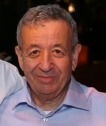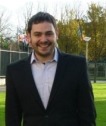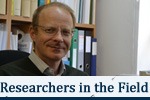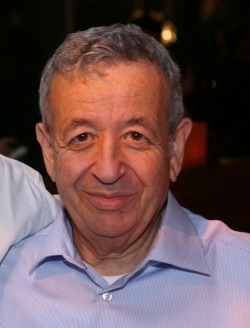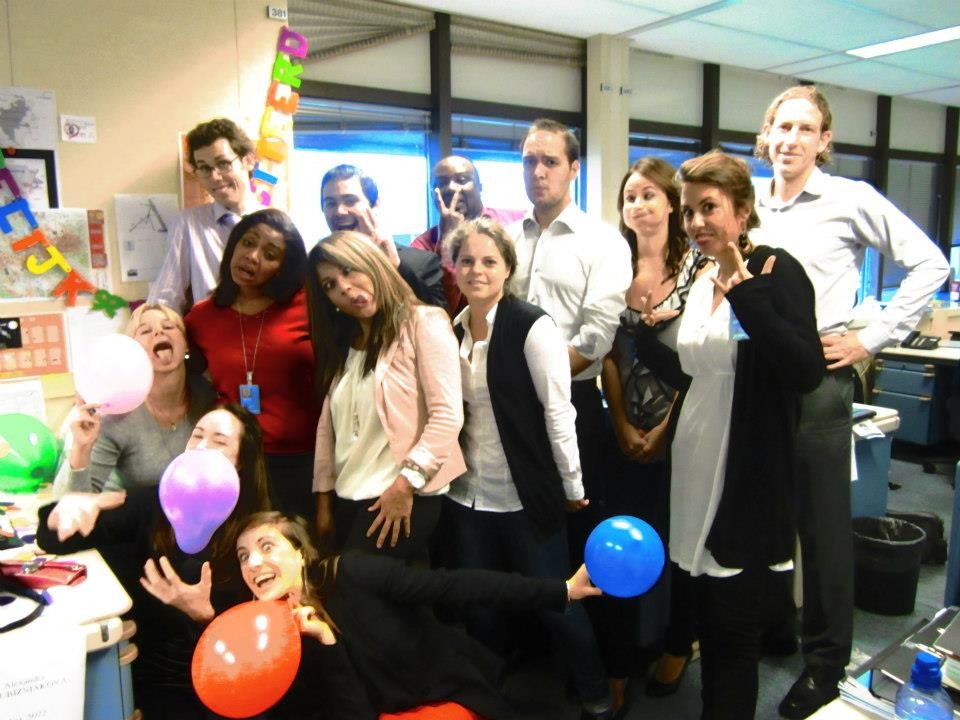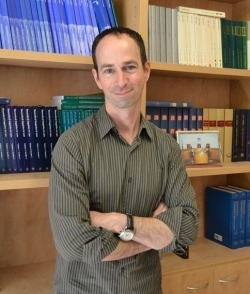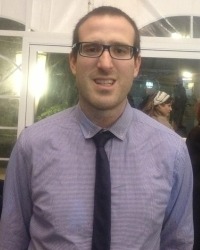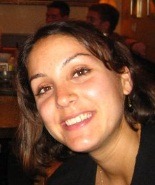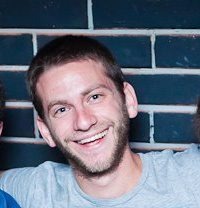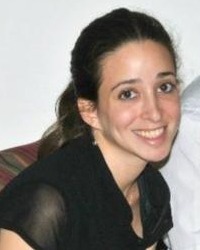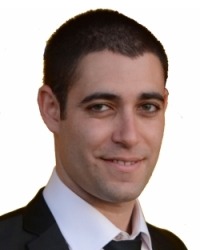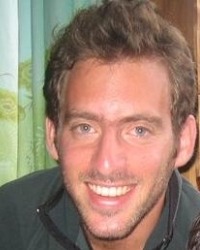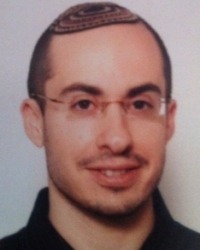Vol. 13
 |
||||||||||||||||||||||||||||||||||||||||||||||||||
|
||||||||||||||||||||||||||||||||||||||||||||||||||
|
||||||||||||||||||||||||||||||||||||||||||||||||||
|
||||||||||||||||||||||||||||||||||||||||||||||||||
An Interview with Professor Eliezer Rivlin
|
A New Law Faculty Member / An Interview with Professor Eliezer Rivlin |
||
|
Professor Eliezer Rivlin, Deputy President (retired) of the Supreme Court, has joined the Faculty * We interviewed Professor Rivlin after he gave a lecture to the Legal Club of Faculty alumni and members * Professor Rivlin discussed his return to the academic world Professor Rivlin only recently joined the Faculty, but he already had a chance to participate in the February meeting of the Legal Club, which brings together alumni and Faculty members. The meeting was hosted by the Nazareth Bar and focused mainly on issues from the field of damages law. The lecturers included the dean of the Law Faculty, Professor Yuval Shany, as well as Professors Israel Gilad and Khaled Husni Zoabi. The meeting ended with audience contributions, providing an opportunity for the alumni to share their views and thoughts. "“Some of the participants in the event were my students during my earlier work in teaching,” Professor Rivlin relates. As will already be apparent, Professor Rivlin is no newcomer to academic life. For several years, and alongside his work as a judge, Rivlin taught various courses at our Faculty and in Tel Aviv University and the College of Administration. However, after his appointment to the Supreme Court he was no longer able to perform both functions. Rivlin has now retired from his position as Deputy President of the Court, and from the next academic year he will begin to teach a seminar together with Professor Barak Medina on the subject of constitutional issues, as well as a course on advanced issues in damages law. |
||
|
Is there any added value in having Faculty members who have also worked in the legal system? What is the main difference between legal practice and academic work?
|
Professor Eliezer Rivlin |
|
|
So I gather that there are many similarities between work on the Supreme Court and academic work. "“We can see a welcome tendency in Israel that is not found in other legal systems to quote academic articles and literature in the court rulings themselves – and particularly to quote Israeli academics. Many rulings draw on academic work. In my opinion this is an interesting and welcome phenomenon. It creates mutual feedback and both sides can only benefit from this situation. Academia learns from court rulings, it also studies and criticizes them.”
What is your impression of the future generation of jurists here in the Faculty?
"“I don’t want to compare one generation to another, but we have an excellent generation of students here now. It’s interesting to teach them because they bring fascinating insights, criticism and theoretical analysis. Teaching methods have changed, of course, and we also have a new generation of lecturers. My impression is that there is a very high standard of critical thoughts, and presumably this is a tool that has been acquired in the Faculty of Law. When we discuss court rulings in class, it’s clear that the students have read the rulings critically and intelligently. I think that when they reach the stage in life when they begin to put their ideas down in writing, they will find the courts very receptive to what they have to say.”
In what ways do you think the teaching methods have changed?
"“There’s a stronger emphasis now on a multidisciplinary approach, which wasn’t the case in my day. The legal profession used to be taught in isolation, without any multidisciplinary references. Things have changed, of course, and now we have programs that combine law with economics, psychology, feminism, and so forth. These combinations add numerous aspects and tools to law itself. For example, the economic analysis of law provides tools that enhance our understanding of the consequences of the judicial act. Judges naturally continue to be responsible for applying normative decisions, but methods such as law and psychology, law and economics, can provide tools for understanding the ramifications of these decisions in the field.” Do you have any expectations as you return to the academic world? "“The main thing is that I have come back to a field that I like. I feel that I have come home. I always thought that when I grew up I would be a university professor. Well, I’ve certainly grown up now and I can realize my dream of teaching at university as my main occupation.”
|
||
An Intern Discusses His Experiences at the International Criminal Tribunal for Yugoslavia
|
“It’s Only Human to Cry, So I Did” – An Intern Discusses His Experiences at the International Criminal Tribunal for Yugoslavia |
|||
|
Many students are interested in working somewhere where they can gain legal experience * Somewhere where they can have an influence and change things while at the same time having an interesting work experience * Somewhere that has good human relations and dynamic and professional atmosphere * This may sound like a pipedream, but perhaps not * Internships at international criminal tribunals are one of the options the Faculty offers that may make the dream come true “’It’s only human to cry, so I did,’” says Chanchalu, his voice cracking and his stomach churning as he stands before the tribunal. Sitting in the courtroom, I also couldn’t stop my tears. But the attorneys warn us interns not to let our emotions show… So instead of crying I’m writing, in the hope that what I write will manage to convey the story of the victims of the horrors in Yugoslavia and to bring their words to wider audiences. I hope I can help to promote the important heritage of the international criminal tribunals and to encourage a different and more positive kind of discourse in Israel regarding the goals and significance of these bodies.” |
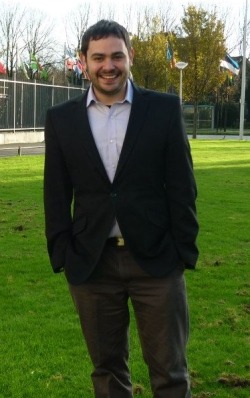 |
||
|
The above piece was written by Asaf Lubin, aged 27, a fourth-year student in the Faculty. Lubin participated in a three-month internship in the office of the prosecutor at the International Criminal Tribunal for the former Yugoslavia in The Hague. He agreed to share with us some of his thoughts following this powerful professional and emotional experience. How did you find yourself in this program? "“I had already participated in a similar program at the Law Faculty run by the Minerva Center which placed students on internships in the international tribunal in Rwanda. The tribunal has completed its work and is about to be closed. At the time there wasn’t another program of this kind in the Faculty (although they are now working on a new program), so I applied independently to the International Tribunal in The Hague. I don’t receive academic credit for the internship, but the Faculty supports my participation, allowing me to take the third exam sittings and providing various other benefits. The Faculty encourages students to participate in these kinds of programs, even though they are not held under its auspices. The internships are unpaid. If anyone’s interested in applying, it isn’t as expensive as it sounds. An apartment in The Hague cost me 300 euro a month – less than in Jerusalem. The Foreign Ministry can also provide scholarships.” What does the internship involve? “I was allocated to the prosecution against Ratko Mladi?, the former Bosnian-Serb chief-of-staff during the civil war in Bosnia in 1992-1995. My job was to prepare the prosecution file for the evidence stage. Every day we presented one or two witnesses. I had to prepare a whole group of witnesses. I’d sit with the witness, listen to their story, prepare the questions with the attorney and prepare the witness to answer the defense’s questions. I was under the authority of a woman who’s responsible for the interns and she manages the work. I also had a mentor who I met with at the beginning, middle and end of the internship. The mentor gives you tools, tips and letters of recommendation as is supposed to continue to help you as you develop your professional career.” What does an intern’s typical day look like? “The working hours are from 9 am to 5:30 pm. It’s a very social working environment. The interns work in huge rooms with an average of 12 to 15 interns per room. They’re all about the same age as you and they come from all around the world. The tribunal itself operates until 2 pm. In the morning you might already have your suit on and be on your way to the tribunal, or you might be preparing files for the attorney. There are also all kinds of procedural tasks, such as preparing summaries of testimonies or what they call ‘disclosure charts’ containing the material that is disclosed to the defense.” How do you manage to learn the procedural rules you need to follow? “The internship mirrors the things you learned in the Faculty. Before I’d even done my internship in Israel, I was already writing an application to the tribunal to summons a witness, filing an application to remove witness protection, and so forth. The tools I acquired in the Faculty, particularly in Gil-Ad Noam’s course on international criminal law, were very useful. During the first few weeks of the internship they provide courses explaining the system, and a lot of times a more experience intern works with a newcomer. Just before I completed my internship a new intern from Belgium arrived and she used to ask me questions. Within three or four weeks you understand everything that’s going on around you. Did you encounter any difficulties? “Some of the projects, such as updating the systems, are very technical and fairly exhausting. After all, you’re only an intern. But there are moments when you can truly stop and say that you did something meaningful. For me, these were the moments when I worked with the witnesses and prepared papers that later became official prosecution documents. Another difficulty is that the work is very emotionally draining, because most of the witnesses are victims. I think that side of the work gave me a new perspective on our own history as a people and on the significance of international criminal law. One witnesses worked in a hospital and lost her legs after she was struck by a mortar. During her testimony, Mladi? interrupted and cursed her. I couldn’t believe it. You can also look at it from the theoretical angle: does someone like him really deserve due process of law? The detention center in The Hague is by the sea and the inmates have courses in arts and crafts. You find yourself wondering whether they really deserve such good conditions. But there aren’t any right answers. Your emotions become mixed up with questions of justice, revenge and deterrence – all the themes you study in the first-year course in penal law.” Are there also interns on the defense side? “The defense has a separate department, a kind of public defense mechanism that is based in The Hague and sends attorneys to the various tribunals. It’s hard for me to imagine how someone can work as an intern for the defense.” In what ways does the experience differ from international law studies in the Faculty? “Imagine yourself sitting a couple of meters away from someone who was directly involved in managing genocide. The name Ratko Mladi? doesn’t mean much to us, but for the average Bosnian it’s not all that different from hearing the name Hitler. You sit really close to him, and he shows no shame at all. He is very loud and the judges often threatened to remove him or accuse him of contempt of court.” What are the main things you have learned? What was your answer to that question? “As an experience it is one of the most amazing things I’ll take with me from my academic studies. Working with the witnesses was the real core of the internship: that’s where I realized what it means. What I’m doing is much bigger than some legal rule I read about in a textbook. This is the human significance of the work of the International Criminal Tribunal. I didn’t realize just how powerful this dimension is until I came here.” Apart from the relatively low cost of living, what else does The Hague have to offer? “The Hague is a city of interns. At any given time there are 400-450 interns from all around the world working in dozens of different tribunals, some of which we barely think about, such as the Lebanese tribunal established following the assassination of Hariri. The atmosphere is a bit like an American college. Every day the interns go out together. They have their own weekly newspaper and of course there’s TND – Thursday Night Drinks. Apart from that, The Hague is a beautiful city. Everything’s close by. Amsterdam is only thirty minutes away and you can easily take weekend trips to German, Belgium and France.” Who is right for this internship? “I’ve never been on a student exchange, so for me this was an opportunity to get to know students from around the world and to learn about different legal cultures and approaches. I think this is important for everyone, even if you aren’t planning a future in international law. For students who are interested in the field, I think it’s pretty much a must. This experience is vital for MA studies in international law and for future work in the United Nations, for those thinking of that direction. The time spent in the tribunal counts as double time because it’s already a United Nations framework. It’s also a great professional experience for anyone who’s interested in criminal law. Most of the attorneys on the team aren’t international lawyers – some of them didn’t even take the international law course in their faculty. To sum up, I would say that it’s a great experience, and if you have the opportunity – go for it!” |
|||
|
|
|||
Researchers in the Field
|
Researchers in the Field / Empirical Legal Center for Research Excellence |
||
|
The first center for research excellence to be established by the Council for Higher Education in the legal field will be based at the Hebrew University. The center, which will include researchers from various faculties in the Hebrew University and the Technion, will focus on empirical research examining decision-making processes in the legal field. Professor Eyal Zamir and Dr. Doron Teichman of the Law Faculty explain the process that led to the establishment of the center and the studies it will pursue.
The new center was established as part of the second wave of the I-CORE program (Israeli Center for Research Excellence), which was initiated in 2010. The program has already established 15 centers for excellence in various fields and serves as a flagship project channeling significant funds for academic research in Israel. In addition to promoting research, the program also encourages the recruitment of new faculty members, including Israeli academics who have left the country as part of the “brain drain” phenomenon. Dr. Yonatan Givati, for example, has returned from his doctoral studies at Harvard Law School and Harvard Economics Department and will be joining the new center of excellence. The members of the center will receive research grants in order to enable them to devote themselves to their research work.
|
||
|
How did you initiate your proposal?
“A preliminary request for proposals was issued to examine relevant issues,” says Teichman, a member of the team that drafted the proposal. “This was basically a brainstorming process, and of about 1,200 ideas 18 were selected. One of them was empirical legal research. Over 60 proposals were submitted in the various fields, and finally 11 were chosen.” Were you surprised when you won?
“Actually,” Zamir admits, “when we received the report on our preliminary proposal we did not think we would win. We improved our proposal in line with the comments we received on the pre-proposal and eventually won the grant.”
|
Dr. Doron Teichman |
|
| Decision Making in the Field
The new Center for Research Excellence (CRE) promotes an interdisciplinary approach. In addition to its head Professor Ritov, the members include several other researchers from non-legal fields: Dr. Assaf Zussman and Dr. Moshe Shayo of the Economics Department; Professor Yishai Yaffe, dean of the School of Business Administration; and two professors from the Technion – Ido Erev and Eldad Yechiam. In addition to Zamir and Teichman, Professor Alon Harel and Professor Assaf Hamdani of the Law Faculty are also members of the center.
How did this team come together? “Our goal was to create a team with a common methodological approach,” Teichman explains. “We might disagree on specific issues, but the proposal itself focuses on the examination of the decision-making process. Eyal and I worked with Ilana Ritov, who is an expert on decision making, and together we decided to look for people who would be suited to this framework.”
What will the center do? “We will engage in the empirical study of economic and behavioral analysis,” says Teichman. “Our work will focus to a large extent on economics and psychology. We want to examine dimensions of rationality and irrationality in decision making.”
Zamir expands: “You can divide empirical studies into two and half types. The first type consists of empirical studies that seek to create and analyze the largest possible database about a given reality in order to see how law affects that field. The problem is that it is very difficult to isolate the different factors explaining outcomes. The second type is experimental, focusing on an examination of the differences between a trial group and a control group. In experimental studies, one can isolate the effect of specific variables, though sometimes the external validity of the findings, outside of the laboratory, is unclear.”
What about the half type? “That’s an attempt to take the best of both worlds – randomized field experiments. We go into the field and try to introduce random changes in order to examine their impact on reality. This solves the problems of identification and validation.” By way of example, Teichman describes a study undertaken by Zussman: “he publishes a sales advertisement on various online boards and examines whether the seller’s name influences the number of calls received. All the other details in the advertisements are identical. So far, it seems that advertisements with Arab names receive fewer calls. After he discovered this, he started to look into private advertisements without names, and found that a disproportionate number of these were placed by Arabs.”
|
||
|
The CRE is a collection of several researchers under a single roof. The methodological format is unified, but the studies themselves vary. “One of my studies, for example,” says Teichman, “examined a question that relates both to law and society and to law and economics. I investigated why Israelis quote prices in dollars in real estate transactions. This seems strange, since signing an agreement in foreign currency incurs risks. Such behavior is rational in conditions of hyperinflation or when the central bank controls foreign currency, as was the case in the past in Israel. But this phenomenon continued even though Israel has adopted a free market model and the inflation rate was dramatically lowered.”
|
Professor Eyal Zamir |
|
|
What did you discover? “This phenomenon continued to be seen until the subprime crisis and the fall in the dollar. I looked at archives of real estate advertisements and found that within a few months they all switched from dollars to shekels.” Did you investigate why this happened? “In my interviews I realized that people still think about their apartments in dollar terms. This may be a case of status quo bias – switching from dollars to shekels constituted a change, and people are reluctant to make changes. As a result people made inefficient contracts until they learned the hard way and lost large sums of money.”
Zamir gives an example of a study that leans more to the experimental side. Zamir, Teichman and Ritov “presented the respondents with a scene where someone has been caught speeding at night. We asked whether they would convict the person. In half of the questionnaires the person was caught by a speed camera, while in the other half two cameras at different points recorded the precise time in which the car passed by them, so that the speed could be calculated according to the distance between the two cameras and the time elapsed. There was a huge difference in the willingness to convict the offender in favor of the speed camera. A series of similar experiments established that there seems to be a psychological pattern – people are hesitant to convict someone on the basis of an inference, even when the objective probability and the subjective probability estimates are similar.”
Is this phenomenon seen in the contemporary legal world? “In some cases the legislator defines offenses relating to behaviors that don’t really bother us that much, such as possessing stolen goods or being found near a bank with a tool that could be used for burglary. The legislator is concerned that the judge will not draw the conclusion that someone who possesses stolen goods is a thief, so it solves the inference dilemma.” Does this mean that future legal experts will be statisticians?
“Legal thought includes a very strong normative foundation: what goals and values do you want to promote? These studies mustn’t be seen as competition for legal thinking: they are merely an addition. They will never replace conventional legal thought, but they will replace intuition with information. It is important to recall that intuition is merely the first step in the process of legal thought.” |
||
Students
|
Students |
|||||
|
|
|||||
|
Who am I? Benjamin (“Binny”) Ashkenazi Age: 27 Year: 3
|
|
||||
|
Shoshi Ben-Amram, the coordinator of undergraduate studies, suddenly called me and told me to come up to Jerusalem so she could prepare a study timetable for me.” Binny stresses that the way he was treated by the Hebrew University was the best of all the universities he applied to. Binny’s main motive for moving was the tuition fee, which is about one-fourth of that in the college, but he has other reasons to be pleased with the change: “The market is saturated and if you want to find a good internship the reputation of the Hebrew University gives you a good start.” Binny is originally from Jerusalem, so the move was also a homecoming to his natural environment. When we asked him about the difference in the level of studies, Binny replied: “I couldn’t claim that the effort I have to make at the Hebrew University is the same as at the College of Administration. The reading material is similar, but the grade standardization system and the generally stronger starting point of the students in the Hebrew University makes it more demanding here.” Students moving from a college to the Hebrew University might be nervous about how they will settle in, but Binny says that things went smoothly: “People weren’t arrogant: everyone was very friendly and helpful. Sometimes we got into arguments about the differences in the standard of studies, but we always ended it amicably. After all, I’m better placed to make the comparison since I’m familiar with both institutions.”
Why law? “Because I have a learning disability, I knew that I couldn’t go for the sciences,” Binny explains. Binny considered the humanities, but was unsure whether that would provide a decent living. He looked for a related field, and today he declares that he is happy with his choice – “even though I sometimes curse myself when it comes to exam time.”
A second hearing: Binny is participating in a clinic on the rights of people with disabilities and is also working in the Israel Bar’s program “Give and Get,” in which students represent disadvantaged clients in civil cases. “I have been exposed to a very wide range of cases and I’ve met the finest side of the legal profession. I often ask myself whether the law does more good than bad, and through this work I have been pleased to see the good side,” he smiles. Binny explains how he helped a man to reduce his debt significantly. He also helped another man who was on the verge of bankruptcy. “Sometimes you can see that they are simply disorganized, so you sit with them, get things in order and that can be enough to save them. You see good people who find themselves fighting bureaucracy. Even as an upstart undergraduate, you realize how much power you have and how much you can do to help them.”
|
|||||
|
Who am I? Lior Mizrachi Age: 26 Year: 3
Why law? Lior is combining her studies of law with social work. This is an unusual combination, but she explains: “For me, social work was a natural choice. Both my parents are social workers who are employed in community centers, so I was following in their footsteps.” She adds that since it was so obvious that she would study social work, she wanted more of a challenge. When she heard about the combined law and social work program she was very excited. “Law is a very important tool for advancing the goals of social work,” she declares. “In that sense, it’s a very logical combination.”
|
|
||||
|
The facts: Lior is not only studying the theoretical aspects of her interesting combination. She is also putting her beliefs into practice in the field, participating in a project of the organization Ma’aglei Tzedek (“Circles of Justice”) called The Gatewatchers. The project works with school security guards in Jerusalem. “The volunteers go to schools an preschools, talk to the guards and give them leaflets explaining their rights,” Lior says. “We also check how they are treated and suggest that they keep a record of the hours they work.” The guards can bring their salary slips to be checked, and the volunteers look for any violations of labor laws. “We find plenty of violations,” Lior says decisively. The goal is to make the guards aware of the possibility of asking the security company to correct violations, and of suing them if they fail to do so. “I was shocked to see how the companies make money at their employees’ expense,” Lior says sadly. “The guards are not usually aware of their rights and don’t know how to fight for them.” This work does not require legal knowledge or expertise in social work, but both fields certainly enhance the project’s effectiveness. Analyzing pay slips requires an understanding of labor law. Although working with people and gaining their trust are partly a function of personality, Lior emphasizes that “I come to these meetings with all that I have learned.”
A second hearing: In her spare time, Lior also works as a professional Pilates instructor. In her first year she started a group in her living room, and she now teaches three groups in her home and two in a studio at the Bank of Israel. In addition to education to healthy living, Lior is also works as a teacher in civics and democracy classes in the Knesset and the courts. Groups of 9th-12th graders participate in guided tours and workshops on such subjects as freedom of expression, the rule of law, Israel’s electoral system, and so forth. “As an instructor, I feel that I can influence young people even in such a short timeframe,” Lior explains. “My main message is that it’s always important to keep up to date, to read the news, and to realize that we can influence things.” Although Lior admits that all her extracurricular activities leave her little time to rest, she says that gets much satisfaction from her areas of involvement.
|
|||||
|
Who am I? Tom Kovatchy Age: 25 Year: 2
|
|
||||
|
The facts: Over the past year, as part of his effort to get to know the university and the city, Tom has worked as a guide in the Faculty’s Orientation Week. The orientation guides accompany new students from the moment they are admitted to the Faculty. During the week before the beginning of the academic year, all the new students come to the Faculty for an intensive three-day orientation program. They tour the campus and the city, including a visit to the Supreme Court. Tom explains that this orientation process helps ensure that the new students have a soft landing. “We work with the freshmen from the stage when they have to decide where to live through to questions about combining law with another field or what bus to take. We even give them a recipe for meatballs,” he laughs. Each guide is responsible for approximately 35 students, and the process does not end in Orientation Week. “We help them with all kinds of things in the Faculty, including how to study, how to read rulings and how to start writing essays.” We asked Tom what skills make a good orientation guide: “The main thing is to be sensitive to others’ needs,” he states. “I don’t think you necessarily have to be the best student. It really doesn’t matter what grade you got in your contract law paper. You need a lot of patience and perseverance.” Tom describes the tremendous sense of satisfaction he gets from this involvement, and even claims that he would be willing to do it for free. “About a year and a half after the orientation, students still come to ask my advice. When I manage to solve a problem I feel really great.” Tom apparently willing to confine his involvement to the orientation program, as he also decided to join a program that helps students for whom Hebrew is a foreign language. “As a Hebrew speaker the first year was hard enough for me, so I could only imagine how hard it would be for someone whose mother tongue isn’t Hebrew,” he explains.
A second hearing: Ask any of Tom’s friends about him and the first thing you’ll hear is that he’s a passionate fan of Maccabi Tel Aviv soccer team. “When I was four years old,” he recalls, “I asked my father what team we supported. Since then I’ve traveled from Rosh Pina and Jerusalem to every match.” But Tom isn’t just a regular fan on the stands. He is active in the “Emblem Brothers” project, an association of people who met at the team’s matches. “A few guys decided they wanted to do more than just watch matches together,” Tom explains. “At Rosh Hashanah they collected donations for the needy, Holocaust survivors and hostels for people at risk.” The project has distributed blankets in winter and collected food parcels before Passover. Anyone is welcome to join in the activities, even if they aren’t a fan of Maccabi Tel Aviv. “I guess it builds a sense of solidarity, because when we meet at matches there’s something special about it,” Tom concludes. |
|||||
|
Who am I? Avigail Leonarons Age: 22 Year: 2
|
|
||||
|
A second hearing: Avigail was an avid sportswoman before she started university. “I’ve played sport for as long as I can remember. In the past I danced and played basketball. Today my main field if cycling. I ride to university even in the rainy Jerusalem winter. I don’t think I’ve used the bus more than a dozen times all year. Even when I start to work as an attorney I hope that I’ll find time to ride to court, just as I ride now to the district court as part of my volunteering at the Breira Center.” What about running? “I try to run twice a week, and even more often when I’m preparing for examinations, because you can’t just sit and study all day. For me, running is the greatest pleasure of the exam period. I get up in the morning and decide that I’m going to study until a set time and then go running. It helps to break the day up into different sections.” Avigail participated in the marathon this year for the second time. “My family and I trying to establish a tradition of running together in the marathon,” she explains. “We did the 10-kilometer run together – my sister and brother and me. There’s a great atmosphere in the marathon – it’s fun to see so many people coming together to engage in sport.” |
|||||
The Internship Chase: Alumni Stories
|
The Internship Chase: Alumni Stories |
|||||
|
There are almost 16,000 law students in Israel * After they graduate, most of them hope to find the best possible internship * Four Faculty graduates who are currently working as interns tell us about their choices and offer some tips for future interns The third year students in the Faculty are currently choosing their internship for next year. While some students are certain that they want to specialize in the private or public sector, others are still unsure what direction they want to take. We spoke to four Faculty graduates who have already made their decision and asked what insights they have to offer the next generation.
|
|||||
|
Noga Blickstein Aged 27, intern in the Supreme Court with Justice Yitzhak Amit Why the public sector? "“I’m not quite sure which I prefer, private or public,” admits Noga, who has completed her internship and must now decide on her next move. “In terms of the internship, I think the public sector is slightly preferable. In a short internship lasting just one year, I think interns in the public sector can be given greater responsibility that in the private sector.”
|
|
||||
|
Tell us about your internship: "“A court internship is different from other public internships,” Noga begins. “The Supreme Court is also different from other courts, because the cases are more significant and interesting and touch on complex legal issues that need particular reflection and study.” The interns prepare opinions for the judges about incoming cases, summarize the facts, write abstracts and make recommendations. The interns also perform functions supporting the justices’ work, such as arranging the courtroom, preparing files for hearings, researching legal literature and case law, examining comparative law, and so forth. “We also calculate compensation in damages cases and check various aspects in order to facilitate the writing of the rulings,” Noga adds. “Even if the final rulings do not include all the research we have done, it’s still valuable. For example, Article 79A of the Courts Law empowers courts to give a compromise the authority of a court ruling. When the justices suggest a compromise they don’t just pluck a figure out of thin air. We work hard so that the justice knows what compromise to suggest. He uses our research even if he doesn’t write a ten-page ruling.”
"“I think I learned a lot about how court procedures work, how justices seek to make their decisions, and how the litigants sometimes need to know how to interpret hints from the justices. I think there’s a lot of truth in the saying “hard cases make bad law.” The justices try to make their rulings as accurate and precise as possible. Sometimes people imagine a kind of Utopian court where judges sit all day making Solomonic judgments. In reality trials are much more practical and mundane, and the litigants also come with this approach. The court tries to find solutions for their problem. I’ve learned a lot about legal proceedings in all fields of law and I’ve worked on a wide range of cases. You are exposed to a large number of cases and you get a ‘taste’ of all kinds of fields. It’s a good opportunity to see which fields you find most interesting.” What’s your tip for the younger generation? "“When you’re in an interview, you sometimes get the feeling that the place isn’t right for you, let alone whether you’re right for them. It’s important to try to work out what message the place conveys and what you want. Sometimes we can’t make our minds up and try to collect external information to help us decide where to do our internship. But I think the feeling you get during your interview can really help tip the scales.” For students hoping to do their internship in the Supreme Court, we asked Noga what qualities she thinks are required for the position. “You need to be very thorough and to be capable of analyzing cases carefully and precisely,” she replies. “That’s true of the legal profession in general, of course. It’s easy to dismiss something that sounds implausible, but you have to avoid the temptation and make sure that everyone enjoys their day in court. As an intern, you help the justice make these checks, and the more seriously you take your job, the more the litigants get out of the process.” Noga also mentioned hard work, intelligence, human relations, and social skills in a small office as important qualities for the position.
|
|||||
|
Omer Ben Matitiyahu Aged 28, intern in Amit, Pollak, Matalon & Co. – Tax Department Why the private sector? "“I’m very attracted to commercial law and particularly to taxation, which relates to all types of commercial transactions,” Omer explains. He also gives some specific reasons for avoiding the public sector: “I don’t see the professional horizon in the public sector. The possibilities for promotion are much more problematic. In terms of the scope of work, too, it seems to me that if you work from nine to five during your internship year, you learn much less than if you’re at the office until eight in the evening.” Matitiyahu is not put off by the long hours demanded by the major law firms.
|
|
||||
|
Tell us about your internship: "“Our department operates on a pool basis. I think that’s the best way of managing internships. Within a given field, you’re exposed to as many different people and opinions as possible and you have multiple sources for acquiring knowledge.” By way of example, Omer explains that he works with two partners, but when he wanted to diversify his experience he was added to a team from the commercial department working on a merger deal. Many students are concerned that the major law firms will not provide proper training and will expect them to run before they can walk. Omer has a reassuring message: “My training process was nothing less than perfect. Whatever I’m working on, they explain how to do it and if necessary they correct me again and again. The learning process is vital in order to produce good attorneys. The firm is looking for interns to fill in a gap for a year: they want people who will grow together with the firm and become good attorneys, and in the future partners in the firm.” Omer was supposed to begin an internship in accountancy, but in the end he preferred to stay in the firm: “I realized that I enjoy the work here. The atmosphere is fun and family-like. The partners know my wife and I know their children.”
"“I’ve been here for a year and a half and I’ve dealt with things that none of the interns I know has been exposed to in other firms. One example is participating in high-level meetings in merger deals involving the some of the leading investment houses in Israel. Another is meeting with some very prominent names in the Israeli economy to plan their taxes. I negotiate with clients by myself, without an attorney being present, because they trust me. They’ve given me the tools and they know I can do the job.” Omer shared one of his experiences during his internship: “We worked on a deal to sell an Israeli start-up company to an American company. The deal was worth hundreds of millions of dollars and I was a full partner in the process from start to finish. When the deal was completed, the senior partner who managed the process sent an email to everyone in the office thanking all those who contributed to the process.” The senior partner made particular mention of four people who performed outstanding work, one of whom was Omer. “As an intern who’d only been in the firm for four months, it was far from obvious that I would be mentioned in this context. It’s very satisfying when people acknowledge your input and recognize its importance to the process. It makes you get up in the morning for work with a smile on your face,” Omer concludes. What’s your tip for the younger generation? “Rather than choosing a good law firm, you need to choose a good ‘school.’ The biggest mistake in choosing an internship is to look at the firm’s ranking and how many attorneys it employs. The first thing to do is to speak to interns in the firm and ask them how things work, how they feel, and how much they are involved in the process. If you choose to go to a high-ranking firm but you end the year with the feeling that you didn’t really learn too much, then the experience didn’t really do anything to build your future career.”
|
|||||
| Or Alkon Aged 27, intern in Agmon & Co. (Jerusalem), Monopolies and Taxes Department Why the private sector?
“Throughout my studies in the Faculty, I found commercial law the most appealing field,” says Or, who also experienced work in the Ministry of Justice as a student. “I spent a lot of time asking myself where I wanted to go. On the one hand the public sector embodies a lot of values, and that’s important. Even so, I decided that for my internship I had to try out the commercial market.” Or comments: “During your studies you see everything in black and white terms. But today I can see that private law firms aren’t all negative.” Private sector workers sometimes feel a need to do something different. In Agmon & Co. they’ve found a solution to this: the firm has launched a volunteering initiative. “Every worker is allocated 50 hours for volunteer work,” Or explains. “I am working at a center for blind people in a non-legal capacity.”
|
|
||||
|
Tell us about your internship
Or participates in meetings with CEOs and company directors that we read about in the press. “We deal with very big cases, and the work is very much grassroots based. It’s not like a theoretical class about corporations. You get to see behind the scenes and it’s very interesting,” he relates. “I watch attorneys that I know are outstanding professionals and I learn from how they act. Sometimes I spend days on end attending meetings and simply listening. The firm believes that interns need to see everything, so I have a real opportunity to learn.”
“I decided to stay in Jerusalem, and at the time I made my decision it seemed to me there were two really top-rank firms in the city – Agmon and Yigal Arnon. Agmon has expanded significantly recently and it has a strong family character,” Or explains. “They look at your performance and your interpersonal relations and they’re not obsessed with how many hours you put in. The firm understands personal needs: for example, people who have children can leave the office early one day a week.” The firm is divided into teams that usually consist of one partner, two or three attorneys and an intern. “This method ensures that people get to know you and can see if you need help in a particular area.” Like Omer, Or has a positive message to convey regarding training in large firms: “You are treated as an individual and the relationship develops naturally. They take notice of you. I really liked it and felt I was part of the team. Tomorrow, for example, we’re all going on a staff outing together.” What’s your tip for the younger generation? “People need to decide which field of law they finds most interesting, and then go to the top two or three firms in that field. The second most important factor are the personal relations and work hours in the firm. When I was a student I didn’t really think about reasonable work hours and I didn’t ask about it in the interviews. I just wanted to find a position in the best firm I could, and hope that they would also be decent guys. So what if I need to stay at the office for another hour in the evening – I’ll work like crazy and eventually it will be over. But it’s never over – the attorneys work just as hard as the interns. Firms that treat their interns well also treat their staff attorneys well, and the opposite is also true. Internship is your first step – it isn’t detached from the rest of your career. When you come to a firm you acquire credit there, so it’s worth making sure that you choose a firm that’s right for you in the long term.
|
|||||
|
Yosef Berman Aged 28, intern in the State Attorney’s Office Why the public sector? “When I applied for law school I already knew that I didn’t want to work in the private sector,” Yosef recalls. “I wasn’t interested in how much I was going to make.” Yosef wanted to use his law studies as a basis for bringing justice wherever it is needed. “I know it’s a clich?,” he admits, “but I think this clich? is really brought to life in the public sector and I haven’t been disappointed.” He feels that attorneys in the private sector can sometimes find themselves at the mercy of their clients’ whims. “Even if you don’t like something and it goes against your beliefs you have to keep the client happy. In our case, the client is the state. It doesn’t dictate a predetermined outcome, but empowers you to reach the true and proper outcome according to standards of law and justice,” he claims. “I was looking for somewhere where I could give something to the country, and I’ve been pleasantly surprised to see just how true that is." |
|
||||
|
Tell us about your internship “Some people seem to think that public sector workers go home at four o’clock in the afternoon,” Yosef begins. “Sometimes I only get home at ten o’clock at night, and every day is chock full with discussions.” Yosef explains that the intern “has to prepare an opinion ahead of legal discussions, at the request of the state attorney or his assistants. An intern is always present in the discussions, except for confidential inner meetings.” The State Attorney’s Office deals with hundreds, if not thousands, of requests on a wide range of issues. “For example, we might receive a letter from a woman who has suffered injustice, and we have to reply and see whether there’s any room for us to intervene or to refer her to the right place.” When asked what he has learned from his internship, Yosef replies: “I’ve lost some of the cynicism I might have had before I came here. I’ve been surprised to see that the typical student declaration that ‘we’re going to make sure justice is done’ is really present at the discussion tables here. That’s very exhilarating. The internship here is also a rare opportunity to rub shoulders with the very top names in the Israeli legal world. You have a chance to acquire real analytical skills.” What’s special about this internship? Yosef says that his internship has exposed him to subjects he could not have encountered elsewhere, such as highly sensitive discussions and “all kinds of things you read about in the headlines.” He explains: “You get a bird’s eye view of everything that’s going on in the legal field. Of course the work can sometimes be tiring or prosaic, but you always have a sense of mission and an awareness that you’ve been given a rare opportunity to peek into the world of truly great jurists that you used to know from the newspapers and now you sit alongside them. Suddenly you start to see how processes work from the inside. You understand things that you used to criticize when you only read about them on websites. You get to deal with issues of life and death and you have a sense of true privilege.” Yosef describes the atmosphere in the interns’ room and in the State Attorney’s Office in general as very pleasant. “The door’s always open and you receive hands-on training, even if it’s not always immediate. If you need something they don’t forget you,” Yosef claims. “If you want to schedule time with the state attorney, you are free to do so. Another advantage is that whoever you call on the phone jumps to help you. If you need to speak to another attorney or to someone in a government ministry, you get straight to the top brass.” What’s your tip for the younger generation? “Students from the Hebrew University Law Faculty enjoy a certain prestige and don’t have to spend time learning the penal code by heart. Your transcript sheet proves your knowledge, but what really matters is to be willing to give your all. They’re looking for people who can see the big picture and who have a smile on their face. You have to show that you have good interpersonal relations and can conduct yourself like a decent human being.” |
|||||
Write On!
|
Write On! The Second Part of Our Series |
||
|
In the previous issue we reviewed the journals in the Faculty in which students are involved * This time, we would like to introduce the non-student journals: the Jerusalem Review of Legal Studies and Shenaton ha-Mishpat ha-Ivri * Each of these journals enjoys a prominent and unique status in its field
|
||
|
Not Just Philosophy: The Jerusalem Review of Legal Studies The Jerusalem Review of Legal Studies (JRLS) is a relatively young journal in the Faculty that is published in English. The chief editors are Professor Elon Harel and Professor David Enoch, who also serves as head of the Department of Philosophy. Professor Yoav Dotan, the previous dean of the Faculty, initiated the establishment of the JRLS approximately four years ago. Enoch recalls: “Yoav contacted Elon and me, and since then we have worked together on the journal. For the first few years the journal was a faculty project, and now it is published in cooperation with the Oxford University Press. Basically there was a partial takeover,” he jokes. |
|
|
|
|
||
|
|
||

